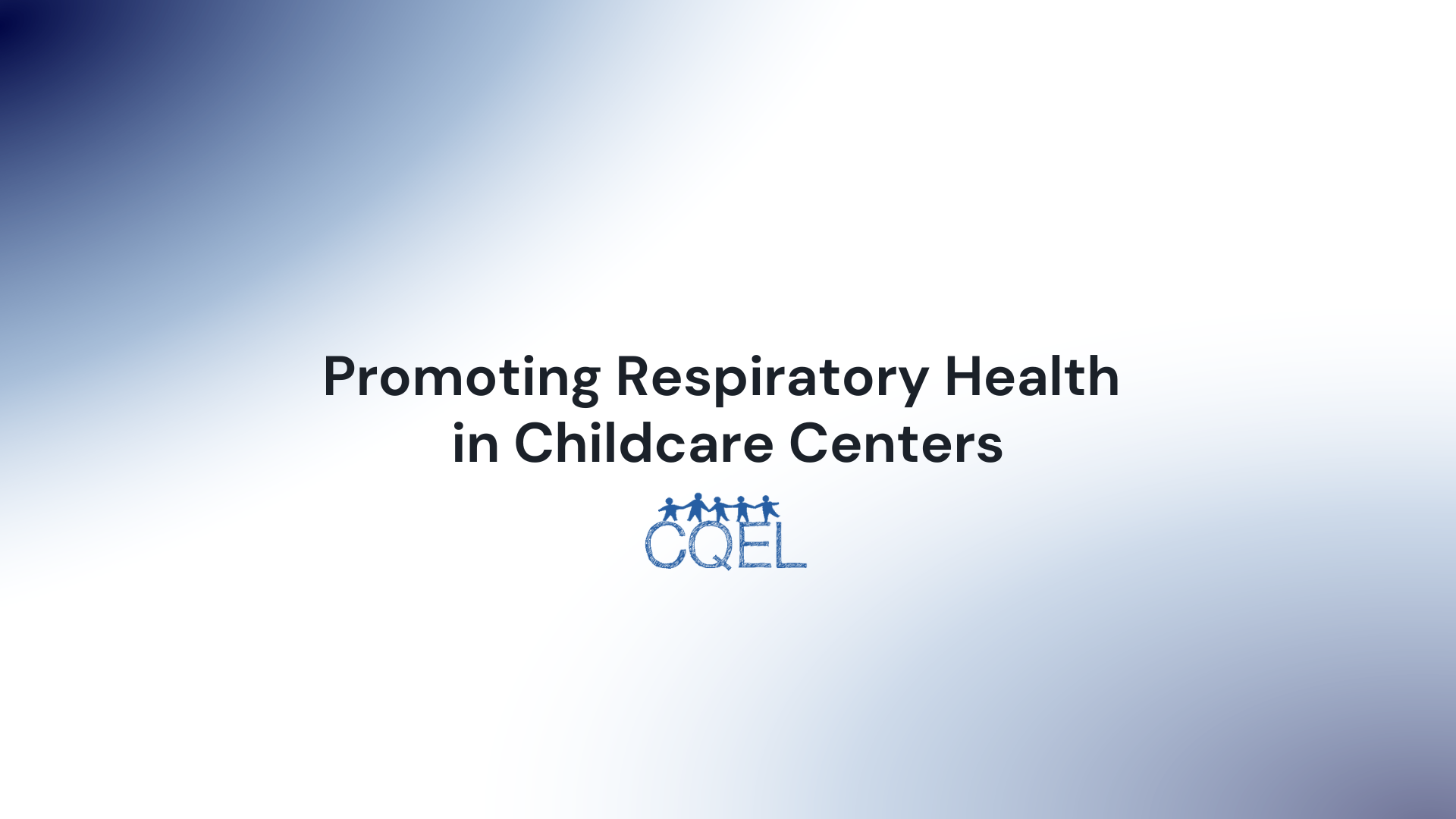Promoting Respiratory Health in Childcare Centers
This post will outline key strategies for promoting respiratory health in childcare centers and provide resources for further guidance.

Promoting respiratory health is crucial in childcare centers, especially considering the current global health situation and the vulnerability of young children to respiratory illnesses. Respiratory infections, asthma, and other respiratory conditions are common in children and can spread quickly in a childcare setting. It is, therefore, essential for childcare providers to implement strategies to promote respiratory health and prevent the spread of respiratory illnesses. This post will outline key strategies for promoting respiratory health in childcare centers and provide resources for further guidance.
Strategies for Promoting Respiratory Health
- Promote Good Respiratory Hygiene: Teach children about the importance of good respiratory hygiene from a young age. This includes covering the mouth and nose with a tissue or elbow when coughing or sneezing, disposing of used tissues immediately, and washing hands frequently with soap and water. Resources such as posters, videos, and interactive activities can be helpful in teaching children about good respiratory hygiene.
- Maintain Good Indoor Air Quality: Poor indoor air quality can exacerbate respiratory problems. Ensure that the childcare facility is well-ventilated, and consider using air purifiers with HEPA filters to remove airborne particles. Additionally, minimize the use of volatile organic compounds (VOCs) such as paints, cleaning agents, and air fresheners.
- Regular Cleaning and Disinfection: Regularly clean and disinfect surfaces, toys, and other objects with which children come in contact. Use cleaning agents that are effective against respiratory viruses but are also safe for children.
- Encourage Physical Activity: Regular physical activity can help improve lung function. Encourage children to participate in appropriate physical activities for their age and ability.
- Monitor and Manage Respiratory Illnesses: Closely monitor children for signs of respiratory illnesses such as coughing, wheezing, and shortness of breath. Have a plan for managing children who develop respiratory symptoms and notify parents and healthcare providers.
- Promote Healthy Nutrition: A healthy diet can help support the immune system and promote respiratory health. Provide well-balanced meals that include a variety of fruits, vegetables, whole grains, lean proteins, and healthy fats.
- Manage Allergens: Common allergens such as dust mites, pollen, pet dander, and mold can trigger respiratory symptoms in susceptible children. Implement strategies to minimize the presence of allergens in the childcare setting.
Resources
- Centers for Disease Control and Prevention (CDC): The CDC provides a wealth of information on respiratory health, including guidelines for preventing the spread of respiratory illnesses and resources for managing asthma in schools. CDC - Respiratory Health
- American Lung Association: The American Lung Association provides resources for promoting lung health, including information on indoor air quality, asthma management, and smoking cessation. American Lung Association
- Environmental Protection Agency (EPA): The EPA provides guidelines for maintaining good indoor air quality and reducing exposure to environmental asthma triggers. EPA - Indoor Air Quality
Promoting respiratory health in childcare centers is crucial for preventing the spread of respiratory illnesses and supporting children's overall well-being. Implementing strategies such as promoting good respiratory hygiene, maintaining good indoor air quality, regular cleaning and disinfection, encouraging physical activity, monitoring and managing respiratory illnesses, promoting healthy nutrition, managing allergens, and promoting vaccination can help achieve this goal. Resources from organizations such as the CDC, the American Lung Association, and the EPA can provide valuable guidance and support.
